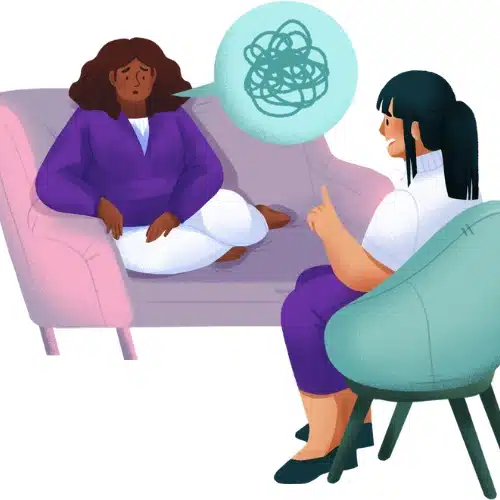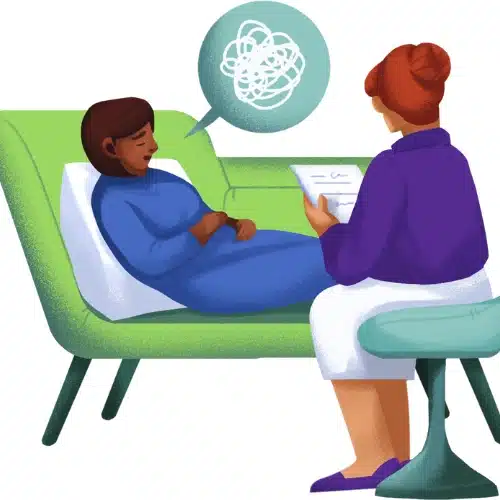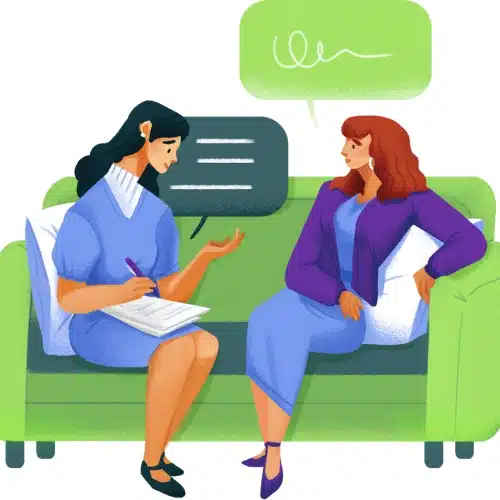Unlock Your Potential with ADD Therapy
Therapy for ADHD offers a structured, personalised approach to managing inattention, impulsivity and hyperactivity. By combining evidence-based methods, such as cognitive-behavioural strategies, mindfulness and hypnotherapy, you’ll learn practical techniques to improve focus, regulate emotions and build lasting organisational habits. Delivered face-to-face or online, ADHD therapy empowers you to understand your unique strengths and challenges, equipping you with tools to thrive at home, work and school.

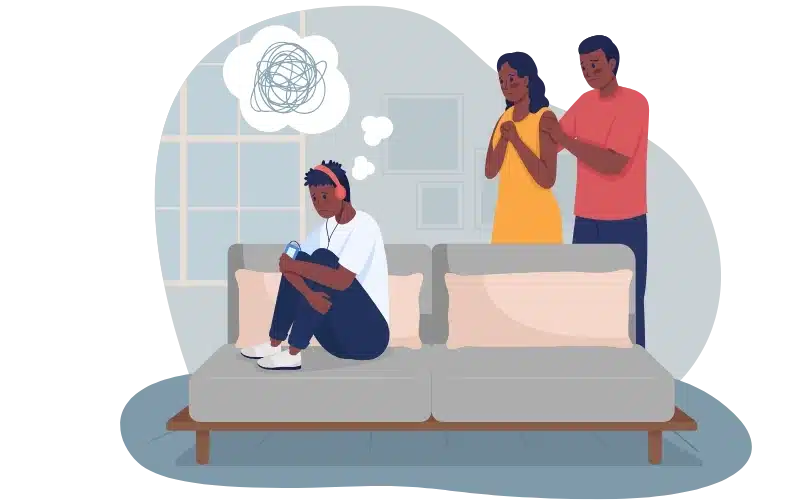

Ready to take the first step towards lasting change?
Contact us today to book your free discovery call or ask any questions, we’re here to help.
WHAT IS ADD AND CAN HYPNOTHERAPY HELP?
ADD, or Attention Deficit Disorder, is a neurodevelopmental condition characterised by persistent difficulties with attention and impulsivity. People with ADD often find it hard to concentrate, frequently lose track of tasks and may act without thinking, which can impact performance at work, school and in daily life.
Can Hypnotherapy Help?
Hypnotherapy is a complementary, non-invasive treatment that guides you into a deeply relaxed, trance-like state, making you more receptive to positive suggestions. While it isn’t a standalone cure, hypnotherapy can empower you to manage core ADD challenges by calming mental chatter, enhancing self-regulation and boosting confidence.
Evidence and Considerations
Emerging studies, including functional neuroimaging research, indicate that hypnosis can strengthen the brain networks responsible for attention and emotional control. Small clinical trials report long-term improvements in focus, impulsivity and overall wellbeing. Always consult a GP or qualified therapist before beginning any new treatment, and use hypnotherapy alongside established interventions such as behavioural support or medication.
Key benefits may include:
BENEFITS OF ADD HYPNOTHERAPY?
Hypnotherapy for ADD offers a wealth of benefits by addressing the condition at a subconscious level, where unhelpful thought patterns and impulsive reactions often originate. Through guided relaxation and focused suggestion, it helps to quiet the mental chatter that so frequently disrupts concentration, allowing the brain’s natural attentional networks to operate more effectively.
At the same time, clients learn practical self-hypnosis techniques that empower them to intercept impulsive urges in real time, fostering a greater sense of self-control and autonomy. Emotional regulation improves significantly, as hypnotherapy reinforces calm, resourceful responses to stressors rather than reflexive frustration or anxiety.
This deeper sense of mastery not only reduces day-to-day tension but also bolsters self-esteem, since each small success in managing ADD symptoms builds confidence and encourages further progress. Moreover, by embedding positive coping strategies directly into the subconscious, hypnotherapy can accelerate lasting change, making it an efficient, non-invasive adjunct to conventional therapies and giving individuals a powerful toolset for thriving both personally and professionally.
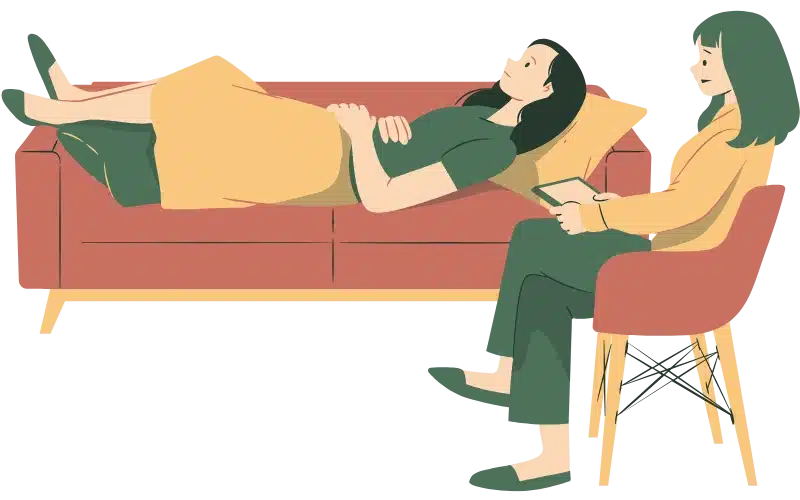

Looking for an Online Hypnotherapist?
Contact us today to book your free discovery call or ask any questions, we’re here to help.
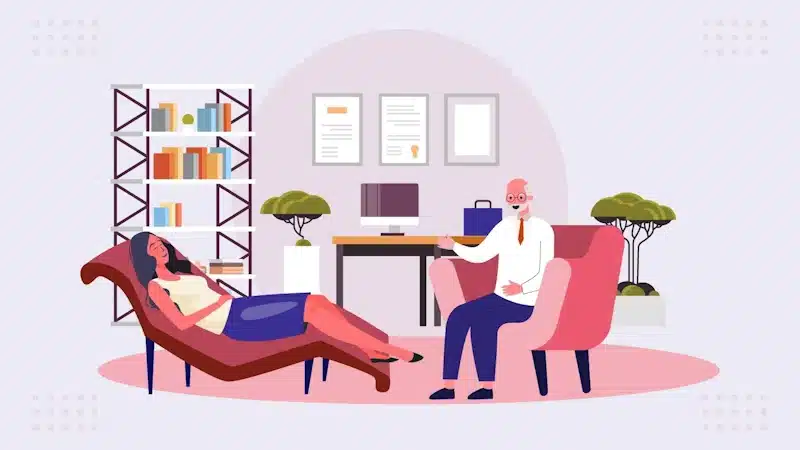
WHY CHOOSE HYPNOTHERAPY FOR ADD?
Choosing hypnotherapy for ADD means embracing a holistic, mind-centred approach that complements conventional treatments and empowers you to take an active role in your own progress. Unlike medication or purely talk-based therapies, hypnotherapy works directly with your subconscious, reprogramming unhelpful thought patterns and emotional triggers that undermine focus and self-control. In a safe, guided trance state, you’ll develop practical self-hypnosis skills to manage impulsivity and sustain attention long after each session has ended. This personalised, non-invasive method not only calms the mind and reduces stress, but also builds lasting confidence by turning small successes into powerful momentum for change.
![]() Subconscious Reprogramming: Targets the root causes of inattention and impulsivity beneath conscious awareness.
Subconscious Reprogramming: Targets the root causes of inattention and impulsivity beneath conscious awareness.
![]() Self-Hypnosis Skills: Empowers you with practical tools to manage ADD symptoms independently, whenever needed.
Self-Hypnosis Skills: Empowers you with practical tools to manage ADD symptoms independently, whenever needed.
Rapid Stress Reduction: Induces deep relaxation, lowering mental chatter and making concentration easier.
![]() Non-Invasive & Drug-Free: Offers an alternative or complement to medication, with minimal side effects.
Non-Invasive & Drug-Free: Offers an alternative or complement to medication, with minimal side effects.
![]() Confidence & Resilience: Each achievement reinforces self-esteem, creating a virtuous cycle of ongoing improvement.
Confidence & Resilience: Each achievement reinforces self-esteem, creating a virtuous cycle of ongoing improvement.
ADD VS ADHD: WHAT'S THE DIFFERENCE?
Although the terms ADD (Attention Deficit Disorder) and ADHD (Attention Deficit Hyperactivity Disorder) are often used interchangeably, they refer to slightly different presentations within the same diagnostic framework. In clinical practice today, ADHD is the umbrella term encompassing three subtypes: predominantly inattentive, predominantly hyperactive-impulsive, and combined. “ADD” colloquially describes the inattentive presentation, where distractibility and concentration difficulties dominate without the overt restlessness or fidgeting associated with hyperactivity. Understanding this distinction helps tailor your Therapy for ADD to the specific challenges you face, whether that involves mastering focus strategies, managing excess energy or balancing both.
![]() Terminology & Diagnosis: ADHD is the formal DSM-5/ICD-10 classification; ADD is the outdated term for its inattentive subtype.
Terminology & Diagnosis: ADHD is the formal DSM-5/ICD-10 classification; ADD is the outdated term for its inattentive subtype.
![]() Symptom Focus: Inattentive (ADD) features distractibility and disorganisation; hyperactive-impulsive involves restlessness and interrupting; combined shows both.
Symptom Focus: Inattentive (ADD) features distractibility and disorganisation; hyperactive-impulsive involves restlessness and interrupting; combined shows both.
![]() Therapy Emphasis: “ADD Therapy” targets concentration, time-management and self-hypnosis; “ADHD Therapy” adds impulse control and energy-regulation techniques.
Therapy Emphasis: “ADD Therapy” targets concentration, time-management and self-hypnosis; “ADHD Therapy” adds impulse control and energy-regulation techniques.
![]() Treatment Tailoring: Medications and strategies overlap but are prioritised based on your dominant presentation, with hypnotherapy scripts customised accordingly.
Treatment Tailoring: Medications and strategies overlap but are prioritised based on your dominant presentation, with hypnotherapy scripts customised accordingly.

How it Works
We offer availability with highly experienced therapists suited to your needs and book the appointment.
Meet the practitioner and begin the road to self-improvement. Have any concerns? Let us know so we can assist.
Find a Therapist in Spain

PROFESSIONAL THERAPY FOR ADD
Before you get in touch, please take a moment to review our Therapy for ADD FAQs. You’ll find answers to common questions about how ADD therapy works, what to expect from hypnotherapy, session formats and pricing. This helps us respond more swiftly and ensures you have all the essential information before beginning your journey towards better focus and self-control. Thank you for your understanding!
How can therapy help manage the core symptoms of ADD?
 Therapy for ADD provides a structured framework to tackle inattention, impulsivity and associated challenges by combining evidence-based psychological techniques with practical skills training. Through approaches such as cognitive-behavioural therapy, coaching and mindfulness, you learn to recognise unhelpful thought patterns, develop effective routines and build resilience against distractions. Over time, these strategies become habitual, reducing the frequency and intensity of common ADD struggles, whether that’s forgetting appointments, acting on impulse or losing track of tasks. Regular therapeutic support also offers accountability and encouragement, helping you stay motivated as you integrate new habits into your everyday life.
Therapy for ADD provides a structured framework to tackle inattention, impulsivity and associated challenges by combining evidence-based psychological techniques with practical skills training. Through approaches such as cognitive-behavioural therapy, coaching and mindfulness, you learn to recognise unhelpful thought patterns, develop effective routines and build resilience against distractions. Over time, these strategies become habitual, reducing the frequency and intensity of common ADD struggles, whether that’s forgetting appointments, acting on impulse or losing track of tasks. Regular therapeutic support also offers accountability and encouragement, helping you stay motivated as you integrate new habits into your everyday life.
![]() Identification and restructuring of negative thought patterns
Identification and restructuring of negative thought patterns
![]() Development of personalised routines for organisation and time-management
Development of personalised routines for organisation and time-management
![]() Training in mindfulness to improve sustained attention
Training in mindfulness to improve sustained attention
![]() Coaching and accountability to reinforce positive behaviours
Coaching and accountability to reinforce positive behaviours
![]() Strategies for managing impulsive urges and emotional regulation
Strategies for managing impulsive urges and emotional regulation
What role does hypnotherapy play in treating ADD, and how does it differ from talk-based approaches?
 Hypnotherapy complements traditional therapies by accessing the subconscious mind in a state of deep relaxation, where you are particularly receptive to positive suggestion. Unlike purely talk-based methods that rely on conscious reflection and behavioural exercises, hypnotherapy uses guided imagery and verbal cues under trance to reprogramme automatic responses. This can accelerate the adoption of new coping scripts, such as pausing before impulsive actions or maintaining focus during routine tasks, by embedding them at a deeper mental level. It remains fully collaborative and transparent: you stay in control throughout and can reject any suggestion that doesn’t feel right.
Hypnotherapy complements traditional therapies by accessing the subconscious mind in a state of deep relaxation, where you are particularly receptive to positive suggestion. Unlike purely talk-based methods that rely on conscious reflection and behavioural exercises, hypnotherapy uses guided imagery and verbal cues under trance to reprogramme automatic responses. This can accelerate the adoption of new coping scripts, such as pausing before impulsive actions or maintaining focus during routine tasks, by embedding them at a deeper mental level. It remains fully collaborative and transparent: you stay in control throughout and can reject any suggestion that doesn’t feel right.
![]() Induces trance-like relaxation to enhance suggestibility
Induces trance-like relaxation to enhance suggestibility
![]() Embeds new coping scripts beneath conscious awareness
Embeds new coping scripts beneath conscious awareness
![]() Works alongside, rather than replacing, CBT or coaching
Works alongside, rather than replacing, CBT or coaching
![]() Accelerates habit formation through subconscious reprogramming
Accelerates habit formation through subconscious reprogramming
![]() Maintains full client agency and ethical transparency
Maintains full client agency and ethical transparency
What should I expect during an initial ADD therapy or hypnotherapy consultation?
 Your first appointment begins with a warm, non-judgemental discussion of your ADD history, current challenges and personal goals. You’ll complete a brief intake questionnaire covering symptoms, lifestyle factors and any existing treatments. For hypnotherapy, I’ll explain the induction process and address any questions or concerns about trance states. We’ll then conduct a short relaxation exercise so you can experience the process firsthand. Finally, we’ll agree on a tailored treatment plan, typically outlining the number of sessions, between-session practice and progress review points, to ensure clarity and confidence before you embark on the programme.
Your first appointment begins with a warm, non-judgemental discussion of your ADD history, current challenges and personal goals. You’ll complete a brief intake questionnaire covering symptoms, lifestyle factors and any existing treatments. For hypnotherapy, I’ll explain the induction process and address any questions or concerns about trance states. We’ll then conduct a short relaxation exercise so you can experience the process firsthand. Finally, we’ll agree on a tailored treatment plan, typically outlining the number of sessions, between-session practice and progress review points, to ensure clarity and confidence before you embark on the programme.
![]() Comprehensive assessment of symptoms, history and goals
Comprehensive assessment of symptoms, history and goals
![]() Explanation of therapeutic or hypnotherapeutic methods
Explanation of therapeutic or hypnotherapeutic methods
![]() Initial relaxation demonstration for hypnotherapy clients
Initial relaxation demonstration for hypnotherapy clients
![]() Collaborative planning of session frequency and duration
Collaborative planning of session frequency and duration
![]() Clear guidance on between-session exercises and next steps
Clear guidance on between-session exercises and next steps
How many sessions are typically required before noticing improvements in ADD symptoms?
 While individual needs vary, many clients observe subtle benefits—such as calmer concentration and reduced impulsivity, after just two or three weekly sessions. A standard initial programme usually comprises four to eight appointments, allowing sufficient time to introduce strategies, practice self-hypnosis or CBT techniques and reinforce new neural pathways. Consistent engagement with between-session exercises, like audio recordings or organisational worksheets, often accelerates progress. After the core programme, optional booster sessions every three to six months can help maintain gains and address any emerging challenges, ensuring long-term stability.
While individual needs vary, many clients observe subtle benefits—such as calmer concentration and reduced impulsivity, after just two or three weekly sessions. A standard initial programme usually comprises four to eight appointments, allowing sufficient time to introduce strategies, practice self-hypnosis or CBT techniques and reinforce new neural pathways. Consistent engagement with between-session exercises, like audio recordings or organisational worksheets, often accelerates progress. After the core programme, optional booster sessions every three to six months can help maintain gains and address any emerging challenges, ensuring long-term stability.
![]() Initial relief often felt after 2–3 sessions
Initial relief often felt after 2–3 sessions
![]() Typical course: 4–8 weekly appointments
Typical course: 4–8 weekly appointments
![]() Between-session practice enhances retention and habit formation
Between-session practice enhances retention and habit formation
![]() Booster sessions (every 3–6 months) for maintenance
Booster sessions (every 3–6 months) for maintenance
![]() Flexible scheduling to suit individual response rates
Flexible scheduling to suit individual response rates
Which techniques do you use in ADD therapy and how do they address inattention and impulsivity?
 Our ADD therapy employs a blend of cognitive-behavioural strategies, mindfulness training, executive-function coaching and hypnotherapy. CBT helps you challenge unhelpful beliefs (“I’m hopeless at time-management”) and replace them with actionable plans. Mindfulness exercises train your brain to observe distractions without reacting, strengthening sustained attention. Executive-function coaching provides tools for planning, prioritising and organising tasks. Hypnotherapy embeds positive suggestions at a subconscious level, reinforcing these skills automatically. Together, these modalities offer a comprehensive toolkit to both understand and overcome the core ADD challenges.
Our ADD therapy employs a blend of cognitive-behavioural strategies, mindfulness training, executive-function coaching and hypnotherapy. CBT helps you challenge unhelpful beliefs (“I’m hopeless at time-management”) and replace them with actionable plans. Mindfulness exercises train your brain to observe distractions without reacting, strengthening sustained attention. Executive-function coaching provides tools for planning, prioritising and organising tasks. Hypnotherapy embeds positive suggestions at a subconscious level, reinforcing these skills automatically. Together, these modalities offer a comprehensive toolkit to both understand and overcome the core ADD challenges.
![]() CBT: Restructures unhelpful beliefs and promotes concrete action plans
CBT: Restructures unhelpful beliefs and promotes concrete action plans
![]() Mindfulness: Enhances ability to notice distractions without immediate reaction
Mindfulness: Enhances ability to notice distractions without immediate reaction
![]() Executive Coaching: Teaches practical skills for organising and prioritising tasks
Executive Coaching: Teaches practical skills for organising and prioritising tasks
![]() Hypnotherapy: Embeds coping strategies at a subconscious level
Hypnotherapy: Embeds coping strategies at a subconscious level
![]() Between-session Tools: Worksheets, apps and audio recordings for daily practice
Between-session Tools: Worksheets, apps and audio recordings for daily practice
Is hypnotherapy safe and appropriate for both adults and children with ADD?
 Yes. Hypnotherapy is widely regarded as a safe, non-invasive complementary therapy for clients aged around seven and above. Sessions for children are shorter (30–45 minutes) and use age-appropriate metaphors and interactive elements, whereas adult sessions last 60 minutes and delve deeper into self-hypnosis training. We conduct a thorough intake to screen for any contraindications, such as acute psychosis, and tailor each session to developmental stage and individual comfort levels. Parental involvement is crucial for minors, ensuring support and reinforcement of techniques at home.
Yes. Hypnotherapy is widely regarded as a safe, non-invasive complementary therapy for clients aged around seven and above. Sessions for children are shorter (30–45 minutes) and use age-appropriate metaphors and interactive elements, whereas adult sessions last 60 minutes and delve deeper into self-hypnosis training. We conduct a thorough intake to screen for any contraindications, such as acute psychosis, and tailor each session to developmental stage and individual comfort levels. Parental involvement is crucial for minors, ensuring support and reinforcement of techniques at home.
![]() Suitable for most clients aged 7 years and older
Suitable for most clients aged 7 years and older
![]() Child sessions: 30–45 minutes with playful metaphors
Child sessions: 30–45 minutes with playful metaphors
![]() Adult sessions: 60 minutes with deeper trance protocols
Adult sessions: 60 minutes with deeper trance protocols
![]() Pre-session screening for contraindications
Pre-session screening for contraindications
![]() Parental consent and involvement for under-18s
Parental consent and involvement for under-18s
Do you offer face-to-face sessions only, or can I book online appointments too?
 We provide both face-to-face and secure online appointments to accommodate your preferences and logistics. In-person clinics are available across Spain and Gibraltar, while virtual sessions use high-quality video-conferencing to replicate the therapeutic environment. Online therapy adds flexibility, eliminating travel time and allowing you to practise self-hypnosis in your own space, while maintaining confidentiality and session depth. All you need is a quiet, private area, a stable internet connection and a device with a camera and microphone.
We provide both face-to-face and secure online appointments to accommodate your preferences and logistics. In-person clinics are available across Spain and Gibraltar, while virtual sessions use high-quality video-conferencing to replicate the therapeutic environment. Online therapy adds flexibility, eliminating travel time and allowing you to practise self-hypnosis in your own space, while maintaining confidentiality and session depth. All you need is a quiet, private area, a stable internet connection and a device with a camera and microphone.
![]() Face-to-face clinics in Spain and Gibraltar
Face-to-face clinics in Spain and Gibraltar
![]() Secure, high-resolution video-calls for virtual sessions
Secure, high-resolution video-calls for virtual sessions
![]() Flexibility to choose the setting that suits you best
Flexibility to choose the setting that suits you best
![]() Guidance on preparing your space for online hypnotherapy
Guidance on preparing your space for online hypnotherapy
![]() Consistent quality and confidentiality in both formats
Consistent quality and confidentiality in both formats
How long does each therapy or hypnotherapy session last, and what is the session format?
 A typical adult session is 60 minutes, structured into five stages: a 10-minute check-in on progress and goals, a 30-minute trance induction with targeted suggestions (for hypnotherapy) or focused CBT work, a 10-minute debrief to capture insights, and a final 10 minutes to plan between-session tasks. Children’s sessions run 30–45 minutes, with shorter inductions and interactive activities. Each session concludes with bespoke audio recordings or worksheets to reinforce learning and ensure practical application during the week.
A typical adult session is 60 minutes, structured into five stages: a 10-minute check-in on progress and goals, a 30-minute trance induction with targeted suggestions (for hypnotherapy) or focused CBT work, a 10-minute debrief to capture insights, and a final 10 minutes to plan between-session tasks. Children’s sessions run 30–45 minutes, with shorter inductions and interactive activities. Each session concludes with bespoke audio recordings or worksheets to reinforce learning and ensure practical application during the week.
![]() Adults: 60 minutes (check-in, induction/CBT, debrief, planning)
Adults: 60 minutes (check-in, induction/CBT, debrief, planning)
![]() Children: 30–45 minutes with age-appropriate activities
Children: 30–45 minutes with age-appropriate activities
![]() Custom audio recordings for hypnotherapy clients
Custom audio recordings for hypnotherapy clients
![]() Written exercises and digital tools for CBT or coaching
Written exercises and digital tools for CBT or coaching
![]() Clear guidance on between-session practice
Clear guidance on between-session practice
Can hypnotherapy be used alongside medication, coaching or other therapies?
 Yes. Hypnotherapy integrates seamlessly with pharmaceutical treatments, coaching, CBT and educational support. It can enhance medication efficacy by teaching relaxation and focus techniques that complement stimulant or non-stimulant regimes. If you’re working with a psychiatrist, GP or educator, we gladly collaborate, subject to your consent, to ensure a coordinated care plan. For those unable or unwilling to medicate, hypnotherapy provides a robust alternative, supporting symptom management without pharmaceutical side-effects.
Yes. Hypnotherapy integrates seamlessly with pharmaceutical treatments, coaching, CBT and educational support. It can enhance medication efficacy by teaching relaxation and focus techniques that complement stimulant or non-stimulant regimes. If you’re working with a psychiatrist, GP or educator, we gladly collaborate, subject to your consent, to ensure a coordinated care plan. For those unable or unwilling to medicate, hypnotherapy provides a robust alternative, supporting symptom management without pharmaceutical side-effects.
![]() Complements stimulant and non-stimulant medications
Complements stimulant and non-stimulant medications
![]() Enhances CBT and executive-function coaching outcomes
Enhances CBT and executive-function coaching outcomes
![]() Collaborative care coordinated with your wider support team
Collaborative care coordinated with your wider support team
![]() Alternative option for those preferring non-pharmacological treatments
Alternative option for those preferring non-pharmacological treatments
![]() Maintains high safety profile in multidisciplinary programmes
Maintains high safety profile in multidisciplinary programmes
